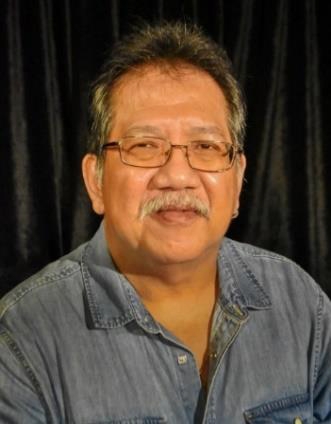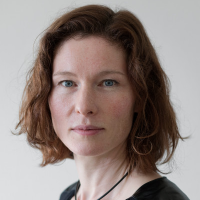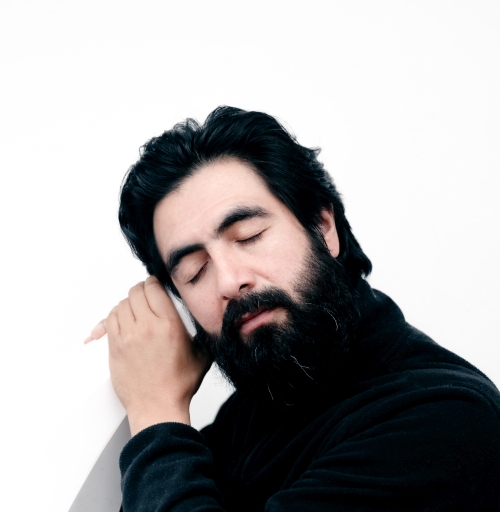Keynote speakers
 Speaker: Paul Charles Augustin
Speaker: Paul Charles AugustinFounder and Festival Director of The Penang Island Jazz Festival (2004 – Present)
Founder and Director of Penang House of Music (2016 – Present)
Paul Augustin (Penang born and raised) was a performing musician for more than 15 years prior to venturing into the Event Management industry in 1993 as project coordinator for concerts and tours.
His music career began whilst still in high school and as a performer, he has done gigs as a soloist, in a duo, trio and also as a bass player in bands all over Malaysia plus a couple of stints in Canberra, Australia in the mid-1980s. He has written and recorded some of his compositions and produced three albums.
In January 1995, Paul took up the post of Assistant Events Manager at Mahir Events (Managers of Stadium Shah Alam) and held a number of posts in various management capacities until his eventual departure as the Group Events Manager in December 1996 to set up an Events & Venue Management Company in partnership with Ms Chin Choo Yuen – The Capricorn Connection.
With the setting up of The Capricorn Connection, Paul was involved in many different types of events ranging from sports to conventions to carnivals and concerts. His involvement in Festivals began in 2001 with the International Culture and Arts Festival for People with Disabilities and in 2002, The Capricorn Connection was contracted to manage and coordinate Carl’s Sunrise Jazz Festival followed by Philips International Jazz Festival and International Kuching Jazz Festival in 2003.
Back in 1996, Paul conceptualized the idea of a Festival on an island and eight years later in 2004 together with Business Partner, Ms Chin Choo Yuen, they realized that dream by starting The Penang Island Jazz Festival. He is a Founder member of the Asian Jazz Festival Organisation and has acted as Advisor for a number of Events and Festivals including JSPA Johor Arts Festival, KK Jazz Festival and KL Music Fest.
In his capacity of Festival Director, Paul, has been invited to participate as a panelist / participant for music industry meetings in a number of countries which include Singapore, Korea, Thailand, China, New Zealand, Hong Kong, Norway, England, Wales, Finland, Spain, Luxembourg and has also been on the artist selection jury for the prestigious jazzahead overseas night in Bremen, Germany.
His strong network connections in the music festival industry has also enabled him to create opportunities for a number of local Malaysian musicians to perform in international festivals in South Africa, Finland, South Korea, China, Hong Kong, Taiwan and Singapore.
Together with James Lochhead, Paul is the Co-Principal Researcher and Co-Curator of The Penang Musical Heritage Project that has produced two exhibitions on the history of popular music in Penang (in 2010 and 2013 respectively), published a book “Just For The Love Of It, Penang’s Popular Music 1930s – 1960s” (2015) and the creation of “Penang House of Music” which is a venue that houses a Gallery, Black Box and a Resource Centre in 2016.
Keynote 2, presented by Netherlands Institute for Sound and Vision: "Cultural AI: How to translate cultural values into concrete AI applications?"
Abstract: Applying AI technologies in the domain of cultural heritage is becoming increasingly mainstream. Archives, libraries and museums take advantage of recent advances in machine learning to (semi)automatically extract meaning from digital objects in their collections, and to recommend relevant objects to users. However, using AI comes with certain pitfalls, notably understanding bias in collections and sufficiently capturing diverging voices represented in the collection.
Cultural values and ethical principles - such as inclusiveness, diversity, transparency, and privacy - do not automatically find their way into AI applications. How do we measure the diversity of recommended objects? How do we know whether collection metadata data is biased towards one perspective? What are feasible ways to increase transparency of AI systems in the the context of a cultural heritage organisation? In this talk I will discuss how we approach these challenges in the Cultural AI Lab, a collaboration between AI researchers, heritage institutes, and humanities scholars.
 Speaker: Laura Hollink
Speaker: Laura HollinkAbstract: En un país en donde se han silenciado las voces humanas y de la naturaleza, exploro la idea de los archivos vivos en contextos de cambio, como acciones poéticas que provocan elementos de reflexión, alrededor de las políticas de memoria y acceso a la justicia social y ambiental. Estas consideraciones han surgido de las experiencias de trabajo artísticos alrededor del paisaje, memoria y archivos sonoros realizados con la radio y la fonoteca nacional de Colombia durante los últimos cinco años.
In a country where the voices of humanity and nature have been silenced, I will explore the idea of living archives in contexts of change, as poetic actions that provoke elements of reflection, around the politics of memory and access to social justice and environmental. These considerations have arisen from the experiences of artistic work around the landscape, memory and sound archives carried out with the radio and the national record library of Colombia during the last five years.

Speaker: Leonel Vasquez
Artista Sonoro colombiano, explora maneras de construir espacios, dispositivos y experiencia para la escucha, como un acto político/estético donde el oyente como testigo sonoro, es incapaz de liberarse de lo que los sonidos demandan. Entre los intereses están: los silencios y memorias de paisajes de agua, la escucha osea en contextos de reparación simbólica, el ruido submarino y democratización de la escucha subacuática.
Ha sido investigador y gestor cultural en proyectos realizados con la Radio Nacional de Colombia y el Ministerio de Cultura de Colombia. Trabaja como docente de arte sonoro en la Universidad de los Andes. Su trabajo ha circulado en Festivales de Arte sonoro Tsonami (Chile), la bienal de arte internacional Open art (Suecia) residencias y exposiciones en varias partes del mundo.
http://www.leonelvasquez.com/
Leonel Vásquez
Bogotá/1981
Keynote 4, presented by Institute of African Studies: "Preserving Audiovisual Heritage is a Front Burner Need; Any options not to?"
Abstract: The Coordinating Council of Audio visual Archives Associations (CCAAA), in its bid to honour audio visual preservation professionals and institutions that safeguard audio visual heritage for future generations, and also as part of the statement to introduce the theme for the 2020 World Day for Audiovisual Heritage, stated that “audio visual materials are objects of documentary heritage that provide a window to the world as we observe events we cannot attend, we hear voices from the past who can no longer speak, and we craft stories that inform and entertain”. This is an apt statement as the current situation of the covid -19 pandemic with its restrictions on large public gatherings has made us to ‘observe events we cannot attend’ in person. It also neatly summarises the importance of audio-visual heritage materials. In my part of the world, there is a saying that ‘the tongue of the departed never gets rotten’ in reference to how important audio-visual heritage materials are in the preservation of information. This need to ensure that these materials exist and are kept safe and in good usable condition makes it imperative for effective awareness raising and putting in of structures to preserve such heritage.
The presentation throws more light on what audio-visual heritage is, where it is found and what its role is as a tool for information access. Issues related to the preservation or non-preservation of audio-visual heritage in Africa are discussed, dovetailing into research carried out on memory institutions in Africa in 2020 during the beginnings of the covid-19 pandemic, and follow-up research early in 2021. The study was to find out how prepared African memory and heritage institutions are to enable them to effectively handle a disaster occurrence including, water, fire, climate change and pandemics. 153 institutions in 24 African countries who responded to the questionnaire were surveyed. The results of the study showed that most African institutions that keep items of memory are ill-prepared for any such occurrence as a result of several factors including lack of funding and current means of quick responses and for preservation. This paper concludes with recommendations including more awareness creation and capacity building to ensure that if any such disasters happen, there is preparedness as to how to ameliorate damages, if not to prevent them completely. It is possible to reduce or even prevent damage to audio visual heritage materials once the necessary precautions are taken into consideration.
 Speaker: Dr. Helena Hassan
Speaker: Dr. Helena Hassan
A librarian by profession for over 45 years, Helena holds a PhD in African Art and Culture. She is a retired University Librarian of the Kwame Nkrumah University of Science & Technology, Kumasi, Ghana; she is former member and later Chairperson of UNESCO’s IAC of the Memory of the World Programme; and a former Governing Board member of IFLA.
Currently, Helena is the Executive Director of the African Library and Information Associations and Institutions (AfLIA) a membership organisation, focusing on capacity building and advocacy for African librarians, information workers and libraries; Chairperson of the Ghana Library Authority; she currently serves as Chairperson of the Ghana NatCom of the MoW Programme; and Secretary General of ARCMoW. She has contributed significantly to the field of Library and Information Science, by participating in several speaking engagements locally and globally and publishing in peer reviewed journals.
